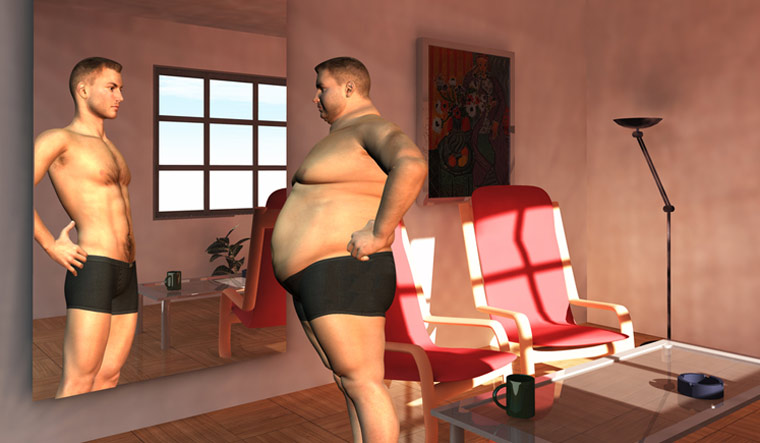In a world ridden with toxic masculinity and impossible standards, it is no wonder that the topic of eating disorders among men is highly avoided. When speaking of eating disorders, most people think only about an insecure teenage girl or a female celebrity who’s grappling with fame. Therein lies the problem. While it is true that the disorder is liable to occur in such people due to increasing societal pressures and self-esteem issues, most fail to notice that the men around them may be suffering from it as well.
Despite the widely prevalent belief that only women are subject to eating disorders, around 30 million people of all ages and genders suffer from the disorder in the US alone–of which 10 million are men. In fact, the male population represents 25% of individuals with anorexia nervosa (a type of eating disorder), and are at a higher risk of dying as they are often diagnosed in the later stages of the disorder as it is assumed that men do not suffer from them.
Failure to recognise eating disorders such as anorexia nervosa and bulimia nervosa in men poses a problem that many do not realise. Victims of the disorders themselves may not notice what they’re going through due to the general stigma attached to mental health issues in males. According to an article published in Healthline, eating disorders in men are characterised by symptoms such as increased exercise regimes and adopting extreme diets.
Media depictions of muscled hairless male bodies distort the perceptions of young males who try to live up to such stereotypes by resorting to intense workouts and a prolonged time in the gym. Usually, this interest in building up their bodies is normal in men; however, it becomes problematic when an unhealthy fixation develops.
Eating disorders develop due to a varied list of psychological factors which may include low self-esteem, the pressure to abide by societal standards (the pressure to be thin), a history of sexual abuse, or even biological factors like a hereditary disposition to mental disorders.
It is not only the physical health of the person that is affected. Eating disorders are also linked to the development of mental disorders such as anxiety, depression, borderline personality disorder and obsessive-compulsive disorder. People who have been diagnosed with eating disorders also have a tendency of being susceptible to substance abuse and self-harm.
“It’s more socially acceptable for women to feel bad about their bodies than males,” Dr. Shiri Sadeh-Sharvit told Healthline. This sums up the reason for the entire façade that men adopt when dealing with mental health illnesses – in this case, eating disorders.
Male celebrities, though fewer in number, have been open and honest about mental health illnesses that they’ve suffered through. The Parent Trap star Dennis Quaid revealed to People that he had suffered from “manorexia” (a frequently used term in media to refer to anorexia in males) in the 1990s. His battle with anorexia began when playing Doc Holliday in the movie Wyatt Earp (1994) when he had to lose 40 pounds. The actor went on to suffer for years before he sought treatment. Not the first to admit to having had an eating disorder, other celebrities such as Russell Brand, Elton John, Eminem and Kit Harington have also come forward with stories of their own struggles with self-image and criticism.
In India, the damage due to eating disorders has not been explored extensively. Even less in the case of men. The belief that eating disorders are alien to the country also limits the scope of diagnosing it. In an article published by the Pune Mirror, Dr. Gauthamadas Udipi (an expert in treating eating disorders) said that, “Various studies of Indian school children have shown that disturbed eating attitudes and behaviours affect about 25–40 per cent of adolescent girls and around 20 per cent of adolescent boys.” The report does not outline the effects of individual eating disorders, which points to the possibility that the actual percentage might be much higher. Still a taboo, most people suffering from mental health problems prefer to keep it under wraps for fear of judgement and thus end up suffering in silence.
Creating an environment in which people feel free to talk about such issues is important, in addition to developing a healthy body image. When the topic of eating disorders–and other mental illnesses–are frequently brought up and talked about, it normalises a person’s perception of them, thereby reducing the stigma attached to mental diseases. Only by speaking openly and candidly about mental health issues can true progress can be made.



